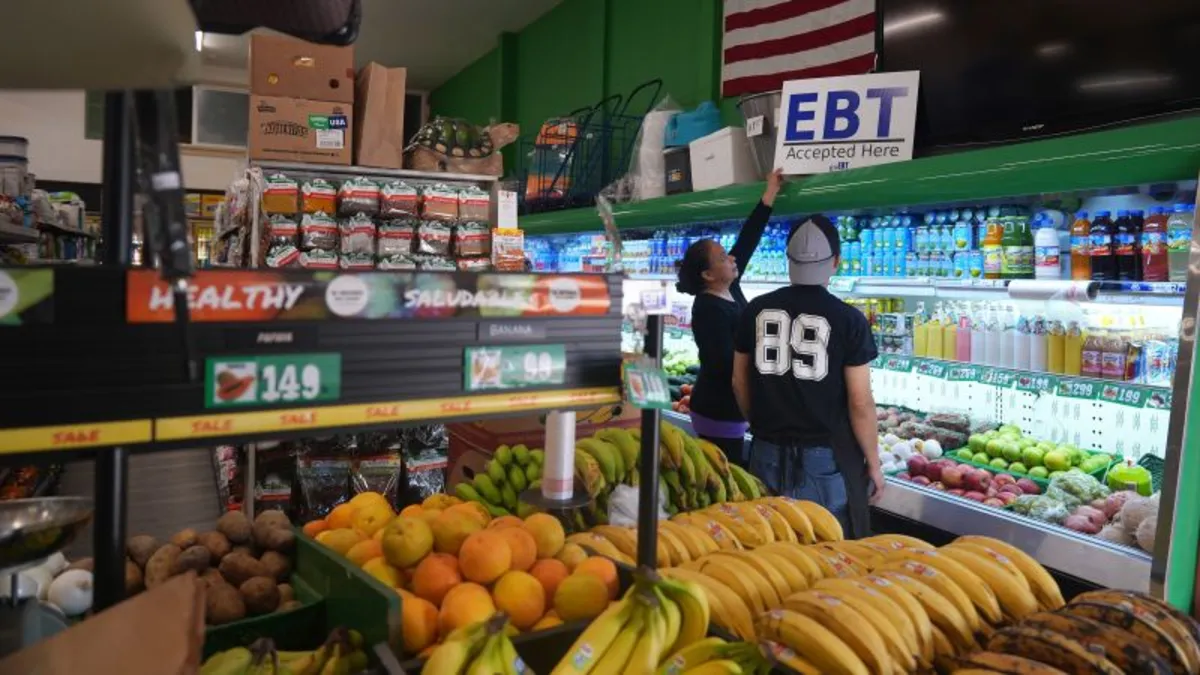
The White House announced on Tuesday its commitment to partially fund critical food aid during the ongoing government shutdown, despite President Donald Trump’s earlier threats to withhold federal assistance. White House Press Secretary Karoline Leavitt addressed reporters, stating that she had spoken with Trump and confirmed that the administration would be “fully complying” with a court order to maintain some Supplemental Nutrition Assistance Program (SNAP) benefits.
“We’re getting that partial payment out the door as much as we can and as quickly as we can,” Leavitt explained, referring to the program commonly known as food stamps. This decision comes after a tumultuous day where Trump caused confusion by suggesting on Truth Social that SNAP benefits would only be provided once “Radical Left Democrats” agreed to reopen the government, which could have left millions without the essential aid they depend on for food purchases.
Trump's comments prompted immediate backlash and fears of a new legal battle over SNAP funding. Over two dozen states, alongside a coalition of cities, nonprofits, unions, and small businesses, initiated separate lawsuits last week to compel the administration to continue at least a portion of the aid. Skye Perryman, CEO of Democracy Forward, a legal organization involved in the coalition's lawsuit, expressed outrage, stating, “This is immoral. See you in court.”
To address the issue, the administration plans to utilize a contingency fund of approximately $5 billion to support partial SNAP benefits into November. The Department of Agriculture, which oversees the SNAP program, issued guidance to states on Tuesday regarding the distribution of these partial payments.
Currently, nearly 42 million Americans rely on SNAP benefits, which average about $350 per household per month when disbursed in full. However, the USDA had previously indicated challenges in meeting the November benefit payments due to legal concerns over using the contingency fund or reallocating money from other accounts. Courts have mandated that the government tap into this fund to provide partial benefits and have permitted funds to be redirected to cover more than $8 billion in benefits and related costs.
Interestingly, Trump had previously indicated that he instructed administration lawyers to seek legal pathways for funding the benefits efficiently. “If we are given the appropriate legal direction by the Court, it will BE MY HONOR to provide the funding, just like I did with Military and Law Enforcement Pay,” he stated in a recent post.
According to the USDA's guidance, not all beneficiaries will receive half of their usual benefit amounts this month. For example, families that qualify for the maximum monthly allotment—$994 for a family of four—will receive approximately half that amount. Single and two-person households that typically receive the minimum monthly benefit will see their aid drop from $24 to $12. Households in between will likely receive varying amounts based on size and income, as noted by Stacy Dean, a former head of the USDA’s Food and Nutrition Service.
States are required to recalculate benefit amounts based on the reduced maximum allotment tables provided by the USDA, which will expedite the distribution of payments compared to adjusting all recipients' assistance uniformly.
A federal judge in Rhode Island has scheduled a hearing for Thursday to consider a request for an order requiring the Trump administration to provide full SNAP benefits for November. This hearing, led by US District Judge John McConnell, is part of a broader legal struggle regarding the SNAP funding that has unfolded in two federal courts. Following the government's notification of its plans to issue only partial benefits, the coalition involved in the legal challenge urged the judge to intervene, asserting that the USDA’s decision was inconsistent with the requirements of his prior order.
The plaintiffs are seeking a new order that would utilize unused tariff funds allocated for child nutrition programs to ensure full SNAP benefits for November. This request has been bolstered by Trump's social media remarks, which the attorneys claim demonstrate that the administration is withholding crucial food assistance for political leverage. The USDA, however, has maintained that utilizing tariff revenue could jeopardize the nation’s free and reduced-price school meals program, which serves approximately 29 million children daily.
The hearing is set to take place at 3:30 p.m. ET on Thursday, as stakeholders await further developments in this critical situation surrounding food assistance in America.